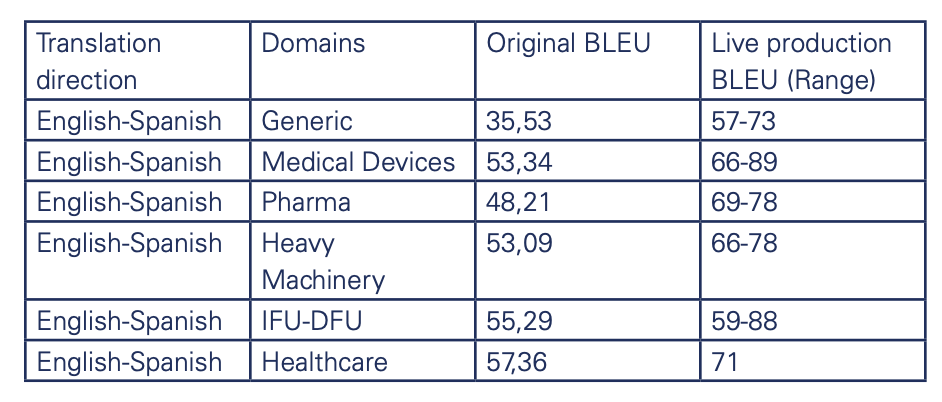Developing domain-specific NMT engines is a unique undertaking that poses several distinct challenges.
For one, the NMT team requires a much larger pool of data and content to build out the terminology and segments. Additionally, to prepare the NMT engines for the basic production domains, ULG had to ensure consistency in the cleaned and aligned data, train the NMT engines to provide higher output quality and then test the integration quality in a standalone and production workflow.



